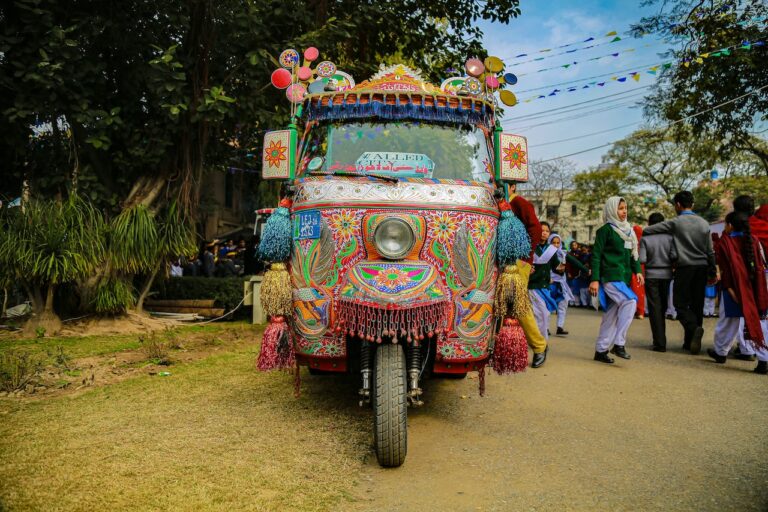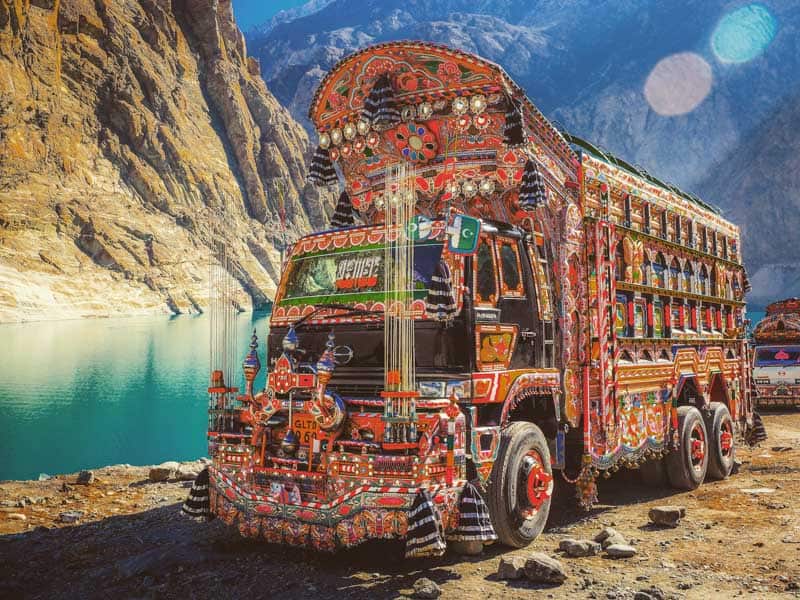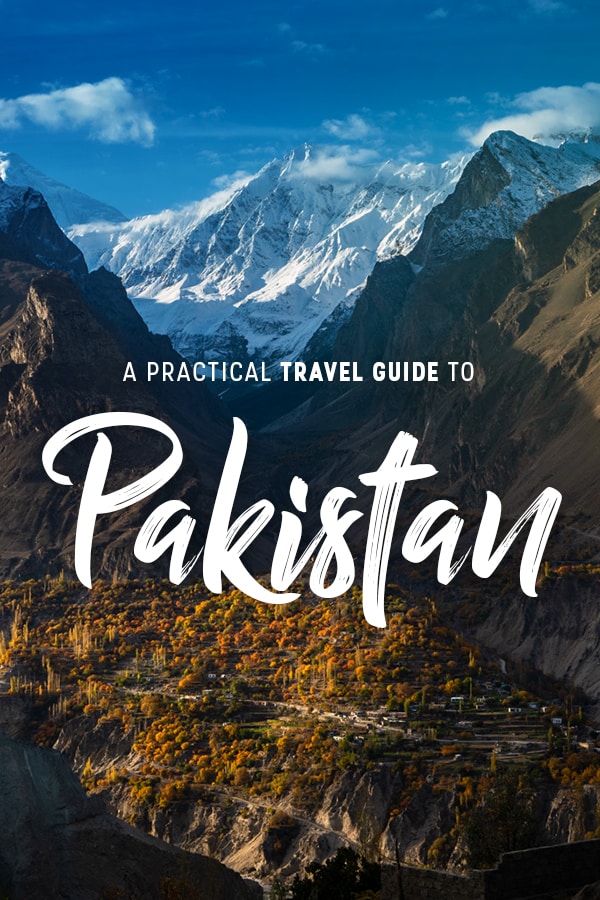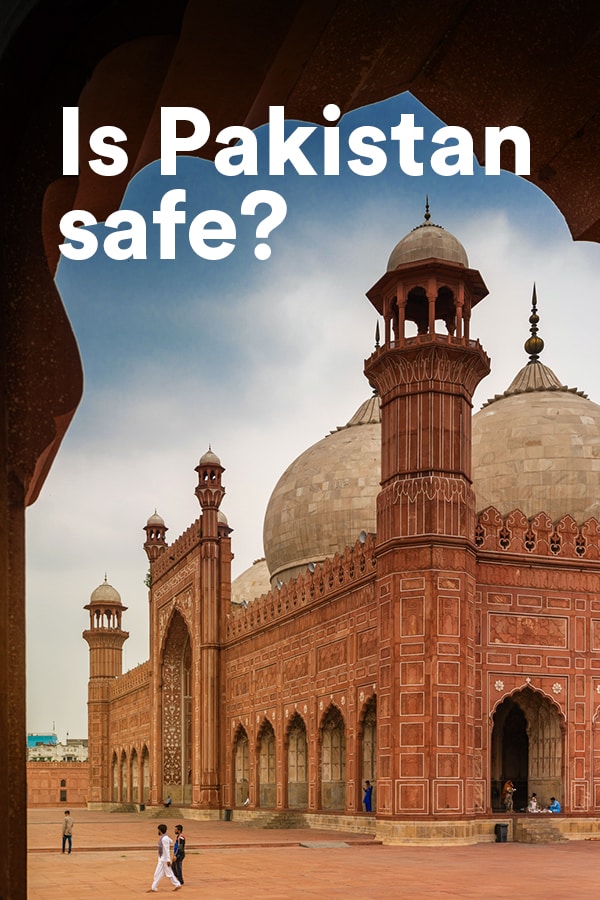Pakistan Travel Tips for Indian Tourists: What You Need to Know

Introduction
Overview of Pakistan
Pakistan, a country rich in history and culture, is located in South Asia and shares its borders with India, Afghanistan, Iran, and China. Known for its diverse landscapes, from the towering peaks of the Himalayas to the vast deserts of Thar, Pakistan offers a blend of ancient traditions and modern influences. The country is home to vibrant cities like Karachi, Lahore, and Islamabad, each boasting unique architecture, bustling markets, and mouth-watering cuisine.
Brief History of India-Pakistan Relations
The history of India-Pakistan relations has been tumultuous, shaped by a complex past and political dynamics. The partition of British India in 1947 led to the creation of two independent nations, India and Pakistan. Since then, both countries have experienced periods of conflict and cooperation, with issues like the Kashmir dispute remaining unresolved.
Despite the challenges, cultural ties and people-to-people interactions continue to bridge the gap between the two nations. Understanding this historical context is crucial for Indian tourists visiting Pakistan to appreciate the nuances of the relationship between the two countries.
Visa Requirements
Visa Application Process
Planning your trip to Pakistan as an Indian tourist? Navigating the visa application process is crucial. Here are some steps to guide you through:
- Visit the official website of the Pakistan High Commission in India to get detailed information on the visa application process.
- Fill out the online visa application form and submit it along with the required documents.
- Schedule an appointment for biometrics and visa submission at the designated application centre.
- Pay the visa fee and wait for processing.
Visa Types for Indian Tourists
Understanding the different visa types available for Indian tourists can simplify your travel plans:
- Tourist Visa: Ideal for leisure travel and exploring the beauty of Pakistan.
- Business Visa: For those visiting Pakistan for business purposes.
- Student Visa: If you intend to study in Pakistan.
Each visa type has specific requirements, so ensure you choose the right one to avoid any complications during your trip.
Cultural Etiquette
Dress Code in Pakistan
When visiting Pakistan, it's essential to respect the local culture by adhering to modest dress codes. Here are some tips to follow:
- For women: Wear loose-fitting clothing that covers your arms and legs, and consider a dupatta (scarf) for added modesty.
- For men: Opt for long pants and shirts; avoid shorts and sleeveless tops, especially in religious or formal settings.
- Remember to remove your shoes before entering mosques or someone's home to show respect.
Greetings and Gestures
Politeness and respect are highly valued in Pakistani culture. Here are some common greetings and gestures to keep in mind:
- The traditional greeting is "Assalamualaikum" (Peace be upon you), to which you respond with "Waalaikum Assalam" (And unto you peace).
- Handshakes are common, but with the right hand, as the left hand is considered unclean.
- When interacting with elders or people of authority, it's customary to use titles like "Uncle" or "Auntie" as a sign of respect.

Safety Tips
After exploring the vibrant culture of Pakistan, ensuring your safety is crucial. Let's delve into the specific safety measures you should keep in mind while travelling in Pakistan.
Area-specific Safety Precautions
- Urban Areas: Stay cautious of pickpocketing in crowded places like markets.
- Remote Regions: Inform someone of your itinerary before venturing into less populated areas.
- Border Areas: Exercise caution near the India-Pakistan border due to heightened security.
Emergency Contacts and Services
In case of any emergencies, it's essential to be aware of the local emergency contacts:
- Police: 15
- Medical Emergency: 115
- Tourist Police: +92 42 1923
Knowing these numbers can provide a sense of security and quick assistance when needed. Stay vigilant and enjoy your travels in Pakistan!

Transportation
After exploring the cultural sites in Pakistan, you'll need reliable transportation to move around. Let's delve into the different options available:
Public Transport Options
When it comes to public transport in Pakistan, there are a few key modes to consider:
- Metro Bus Services: Offered in major cities like Lahore and Islamabad, providing affordable and convenient travel.
- Rickshaws: Commonly found and a budget-friendly way to navigate through bustling streets.
- Local Buses: Ideal for longer journeys between cities, offering a glimpse into everyday life for locals.
Hiring a Private Vehicle
For a more personalized and flexible travel experience, hiring a private vehicle might be the way to go:
- Car Rentals: Easily available at airports and major cities, allowing you to explore at your own pace.
- Driver Services: Hiring a driver along with a vehicle can ensure a stress-free journey, especially for longer trips or unfamiliar routes.
Accommodation
Types of Accommodation Available
When looking for accommodation in Pakistan, you'll find a variety of options to suit different preferences and budgets. Here are some common types of accommodation available in the country:
- Hotels: Ranging from budget to luxury, hotels offer a comfortable and convenient stay with amenities like room service and housekeeping.
- Guesthouses: Quaint and cosy guesthouses provide a more personalized experience often run by local families.
- Hostels: Ideal for budget travellers, hostels offer dormitory-style rooms and a social atmosphere for meeting fellow travellers.
- Resorts: Escape to scenic locations with resort accommodations offering relaxation and recreational facilities.
Tips for Booking Accommodation
When booking accommodation in Pakistan, consider the following tips to ensure a pleasant stay:
- Research and read reviews from previous guests to gauge the quality of the accommodation.
- Check for amenities and services offered to meet your needs.
- Book in advance, especially during peak tourist seasons, to secure your preferred choice.
- Consider the location of the accommodation in relation to the attractions you plan to visit.
- Compare prices on different booking platforms to find the best deal for your stay.

Food and Dining
Popular Pakistani Dishes to Try
When in Pakistan, your taste buds are in for a treat with a diverse range of flavorful dishes. Here are some must-try Pakistani delicacies:
- Biryani: A fragrant rice dish with tender meat cooked to perfection.
- Nihari: A slow-cooked stew bursting with spices and richness.
- Samosas: Crispy pastry filled with spiced potatoes or minced meat.
- Chapli Kebab: Spiced minced meat patties grilled to juicy perfection.
- Haleem: A hearty mixture of grains, lentils, and meat cooked to a thick consistency.
Dietary Restrictions and Considerations
For Indian tourists with dietary restrictions, it's essential to communicate your needs clearly. Here are some pointers to keep in mind:
- Vegetarian Options: Pakistani cuisine offers a variety of delicious vegetarian dishes like daal, vegetable curries, and roti.
- Allergies: Inform restaurant staff about any food allergies to ensure a safe dining experience.
- Halal Food: Pakistan predominantly serves halal food, making it easier for visitors with specific dietary requirements.
Enjoy the culinary journey through Pakistan's vibrant food scene!
Currency and Money Matters
After diving into the cultural nuances and safety tips for your trip to Pakistan, it's time to talk about managing your finances while exploring this vibrant country. Let's delve into the nitty-gritty details of handling money matters smoothly during your visit.
Exchange Rates and Currency Exchange
When it comes to navigating exchange rates and currency exchange in Pakistan, here are some essential points to keep in mind:
- The official currency of Pakistan is the Pakistani Rupee (PKR).
- Exchange rates can fluctuate, so it's advisable to check the current rates before exchanging money.
- Major cities and airports have authorized currency exchange outlets where you can convert your Indian Rupees to Pakistani Rupees.
Cash vs. Card Payments
Making decisions between cash and card payments can impact your travel experience:
- Cash is widely accepted in Pakistan, especially in local markets and smaller establishments.
- While cards are accepted in larger hotels and restaurants, having cash on hand for smaller vendors is convenient.
Notify your bank before travelling to avoid any card payment issues due to unfamiliar transactions. Navigating currency exchange and payment methods efficiently will ensure a hassle-free experience as you explore the beauty of Pakistan.
Communication
Language Spoken in Pakistan
Pakistan is a diverse country with multiple official languages. While Urdu is the national language, English is widely spoken and understood, especially in urban areas and tourist destinations. Here are some key points about language in Pakistan:
- Urdu: The official language used in government, media, and educational institutions.
- English: Commonly used for business, tourism, and official communication.
- Regional Languages: Each province has its own language, such as Punjabi, Sindhi, Pashto, and Balochi.
Getting a Local SIM Card
Staying connected while travelling in Pakistan is essential. Acquiring a local SIM card is a smart choice to ensure seamless communication during your trip. Here’s what you need to know:
- Visit authorized mobile service providers or kiosks to purchase a SIM card.
- You will need to provide your passport and proof of identity for registration.
- SIM cards are affordable and offer various data and call packages.
- Popular service providers include Jazz, Telenor, Zong, and Ufone.
Having a local SIM card will make it easier to navigate, communicate, and stay in touch while exploring the vibrant culture of Pakistan.
Sightseeing and Attractions
Must-Visit Places for Indian Tourists
When visiting Pakistan, Indian tourists have a plethora of captivating sights to explore. Here are some must-visit places to add to your itinerary:
- Lahore: Immerse yourself in the historical grandeur of Lahore Fort and marvel at the stunning architecture of Badshahi Mosque.
- Islamabad: Discover the serene beauty of Faisal Mosque, set against the backdrop of the Margalla Hills.
- Karachi: Experience the bustling city life and visit the iconic Clifton Beach for a relaxing evening by the Arabian Sea.
- Northern Areas: Embark on a breathtaking journey to Gilgit-Baltistan, where you can witness the majestic beauty of Hunza Valley and Skardu.
Tips for Exploring Cultural Sites
When exploring cultural sites in Pakistan, remember these tips for a fulfilling experience:
- Respect local customs and traditions.
- Dress modestly, especially when visiting religious sites.
- Engage with locals to learn about the history and significance of each site.
- Be mindful of photography restrictions in certain areas.
- Take your time to soak in the rich cultural heritage and appreciate the beauty of each site.
Shopping Tips
When exploring Pakistan, shopping for souvenirs can be a delightful experience, offering you a glimpse into the local culture and craftsmanship. Here are some tips to enhance your shopping adventures:
Popular Souvenirs to Buy:
- Handwoven Carpets: Pakistan is famous for its intricately designed carpets that make for beautiful additions to any home.
- Embroidered Textiles: Explore the vibrant world of Pakistani embroidery, from shawls to dresses, showcasing exquisite craftsmanship.
- Brass and Copperware: Take home handcrafted brass and copper items like trays, vases, and utensils as unique mementoes.
- Pashmina Shawls: Known for their softness and warmth, Pashmina shawls are a luxurious souvenir to cherish.
Bargaining and Negotiating Prices:
- Engage in Friendly Haggling: When shopping in local markets, bargaining is common practice. Approach it with a smile and a friendly attitude.
- Start Low: Begin negotiations at a lower price and gradually work your way up, finding a middle ground that satisfies both you and the seller.
- Respect Local Customs: Remember to be respectful during negotiations, acknowledging the value of the seller's goods while also looking for a fair deal.
Shopping in Pakistan is not just about acquiring items; it's about immersing yourself in the local culture and creating lasting memories through unique finds.
Health and Wellness
After ensuring your safety in Pakistan, it's vital to focus on health and wellness during your trip. Taking the necessary vaccinations and health precautions can make a significant difference in your overall experience.
Vaccinations and Health Precautions
Travelling to a new country always comes with health considerations. When visiting Pakistan, it's advised to take the following vaccinations and health precautions:
- Routine Vaccinations: Ensure your routine vaccinations are up to date.
- Hepatitis A and B: Recommended for all travellers.
- Typhoid: Especially important if you're eating street food.
- Polio: Pakistan is one of the countries where polio is still a risk.
- Malaria: Depending on the region you plan to visit, antimalarial medication may be necessary.
Medical Facilities in Pakistan
Pakistan has a mix of public and private healthcare facilities. While major cities boast quality medical services, rural areas may have limited facilities. Here are some points to consider:
- Quality of Care: Private hospitals offer excellent care but can be expensive.
- Insurance: Ensure you have travel insurance that covers medical expenses.
- Prescriptions: Carry your prescriptions for any required medication.
- Emergency Services: Save emergency contact numbers for quick access in case of need.
Prioritizing your health and being prepared can ensure a smooth and enjoyable trip to Pakistan.

Weather and Climate
Best Time to Visit Pakistan
When planning your trip to Pakistan, the timing can significantly impact your experience. Here's a breakdown of the best times to visit this diverse country:
- Spring (March to May): The weather is pleasant, and nature comes to life with blooming flowers and lush greenery.
- Fall (September to November): Another ideal time to visit, with mild temperatures and beautiful autumn colours.
- Avoid Summer (June to August): Summers can be scorching, especially in the southern regions, so it's best to avoid this period if you're not a fan of extreme heat.
- Winter (December to February): Northern areas like Hunza and Murree transform into winter wonderlands, perfect for snowy adventures.
Packing List for Indian Visitors
When packing for your trip to Pakistan, consider including the following essentials in your luggage:
- Lightweight, breathable clothing: Especially during the warmer months.
- Comfortable walking shoes: Essential for exploring the vibrant streets.
- Sunscreen and sunglasses: Protection from the sun's harsh rays.
- Travel adapter: To charge your devices.
- Medications: Carry necessary medications along with prescriptions.
- Cash and credit cards: Ensure you have various payment options.
By packing smartly and considering the best time to visit, you can make the most of your trip to Pakistan.

Etiquette in Public Places
Respectful Behavior in Religious Sites
When visiting religious sites in Pakistan, it is essential to show respect for the local customs and traditions. Here are some tips to ensure you honour the religious sanctity of these places:
- Dress modestly, covering your arms and legs, and consider covering your head if required.
- Remove your shoes before entering mosques or temples.
- Maintain a quiet demeanour and avoid loud conversations or disruptive behaviour.
- Ask for permission before taking photos, as not all religious sites allow photography.
Tips for Interacting with Locals
Interacting with locals in Pakistan can be a rewarding experience that allows you to gain insight into the culture and traditions of the country. Here are some tips to help you connect with the locals:
- Greet people with a smile and a friendly "Salam" (hello) or "Adaab" (respectful greeting).
- Be open to learning about Pakistani customs and traditions, and show genuine interest in your conversations.
- Avoid sensitive topics like politics or religion unless initiated by the locals.
- Always thank people for their hospitality and kindness, as politeness is highly valued in Pakistani culture.
Conclusion
Summary of Key Points
Throughout this guide, we have explored essential aspects for Indian tourists planning to visit Pakistan. Here's a brief recap of the key points covered:
- Visa requirements and application processes for Indian tourists.
- Cultural etiquette tips, including dress codes and greetings in Pakistan.
- Safety precautions and emergency contacts for a secure visit.
- Transportation options, both public and private, for easy navigation.
- Accommodation types and booking tips for a comfortable stay.
- Food and dining recommendations, highlighting popular Pakistani dishes.
- Currency exchange advice and payment options for financial ease.
- Communication essentials and sightseeing attractions for a memorable trip.
- Shopping tips, health precautions, and weather considerations for a pleasant visit.
Final Thoughts and Recommendations
Embarking on a journey to Pakistan from India opens up a world of cultural richness and historical wonders. As you prepare for your adventure, keep these final thoughts in mind:
- Embrace the warm hospitality of the Pakistani people and immerse yourself in the diverse traditions.
- Stay curious and open-minded to fully appreciate the beauty and vibrancy of this remarkable country.
- Remember to respect local customs and adhere to cultural norms to ensure a harmonious travel experience.
- Above all, savour every moment of your trip, creating lasting memories that will inspire and enrich your outlook on the world. Pakistan eagerly awaits your discovery!
